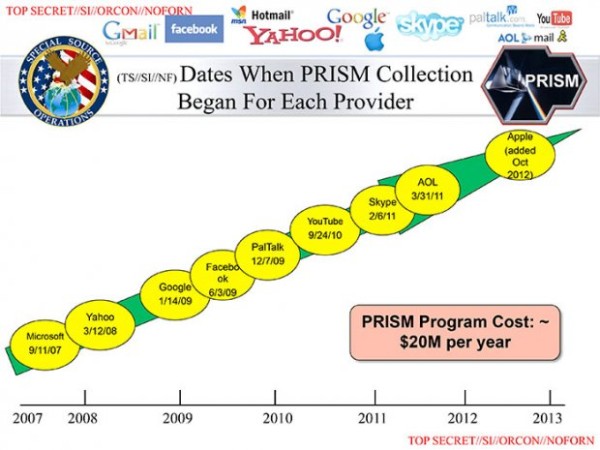Reporters Without Borders calls on the US Congress to create a commission of enquiry into the links between US intelligence agencies and nine leading Internet sector companies that are alleged to have given them access to their servers. The commission should also identify all the countries and organizations that have contributed to the mass digital surveillance machinery that – according to reports in the Washington Post and Guardian newspapers in the past few days – the US authorities have created.
According to these reports, the telephone company Verizon hands over the details of the phone calls of millions of US and foreign citizens every day to the National Security Agency (NSA), while nine Internet majors – including Microsoft, Yahoo, Facebook, Google and Apple – have given the FBI and NSA direct access to their users’ data under a secret programme called Prism.
US intelligence agencies are reportedly able to access all of the emails, audio and video files, instant messaging conversations and connection data transiting through these companies’ servers. According to the Guardian, Government Communication Headquarters (GCHQ), the NSA’s British equivalent, also has access to data collected under Prism.
The proposed congressional commission should evaluate the degree to which the collected data violates privacy and therefore also freedom of expression and information. The commission’s findings must not be classified as defence secrets. These issues – protection of privacy and freedom of expression – are matters of public interest.
In his latest report, presented to the United Nations on 3 June, UN special rapporteur Frank La Rue argues that there can be no freedom of expression and opinion without protection of privacy. Reporters Without Borders adds that respect for the confidentiality of communications between journalists and their sources is a necessary condition for freedom of information.
On 7 June, the Obama administration recognized the existence of these two mass surveillance programmes but the nine companies named in a leaked document about Prism have denied any knowledge of the secret programme and have denied allowing direct access to their servers.
According to the leaked document about Prism, it was launched back in 2007 with congressional approval.






